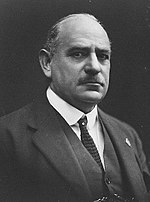
John Monash
Australian general
Scottish philosopher and historian; (1723-1816)
Adam Ferguson, (Scottish Gaelic: Adhamh MacFhearghais), also known as Ferguson of Raith (1 July N.S. /20 June O.S. 1723 – 22 February 1816), was a Scottish philosopher and historian of the Scottish Enlightenment.
Ferguson was sympathetic to traditional societies, such as the Highlands, for producing courage and loyalty.
Table of Contents
Adam Ferguson, (Scottish Gaelic: Adhamh MacFhearghais), also known as Ferguson of Raith (1 July N.S. /20 June O.S. 1723 – 22 February 1816), was a Scottish philosopher and historian of the Scottish Enlightenment.
Ferguson was sympathetic to traditional societies, such as the Highlands, for producing courage and loyalty. He criticized commercial society as making men weak, dishonourable and unconcerned for their community. Ferguson has been called “the father of modern sociology” for his contributions to the early development of the discipline. His best-known work is his Essay on the History of Civil Society.
In every commercial state, notwithstanding any pretension to equal rights, the exaltation of a few must depress the many.
Scottish philosopher and historian; (1723-1816)
The history of mankind is confined within a limited period, and from every quarter brings an intimation that human affairs have had a beginning.
Scottish philosopher and historian; (1723-1816)
The artist finds, that the more he can confine his attention to a particular part of any work, his productions are the more perfect, and grow under his hands in the greater quantities.
Scottish philosopher and historian; (1723-1816)
Every step and every movement of the multitude, even in what are termed enlightened ages, are made with equal blindness to the future; and nations stumble upon establishments, which are indeed the result of human action, but not the execution of any human design.
Scottish philosopher and historian; (1723-1816)
Like the winds that we come we know not whence and blow whither soever they list, the forces of society are derived from an obscure and distant origin. They arise before the date of philosophy, from the instincts, not the speculations of men.
Scottish philosopher and historian; (1723-1816)
Man, in his animal capacity, is qualified to subsist in every climate.
Scottish philosopher and historian; (1723-1816)